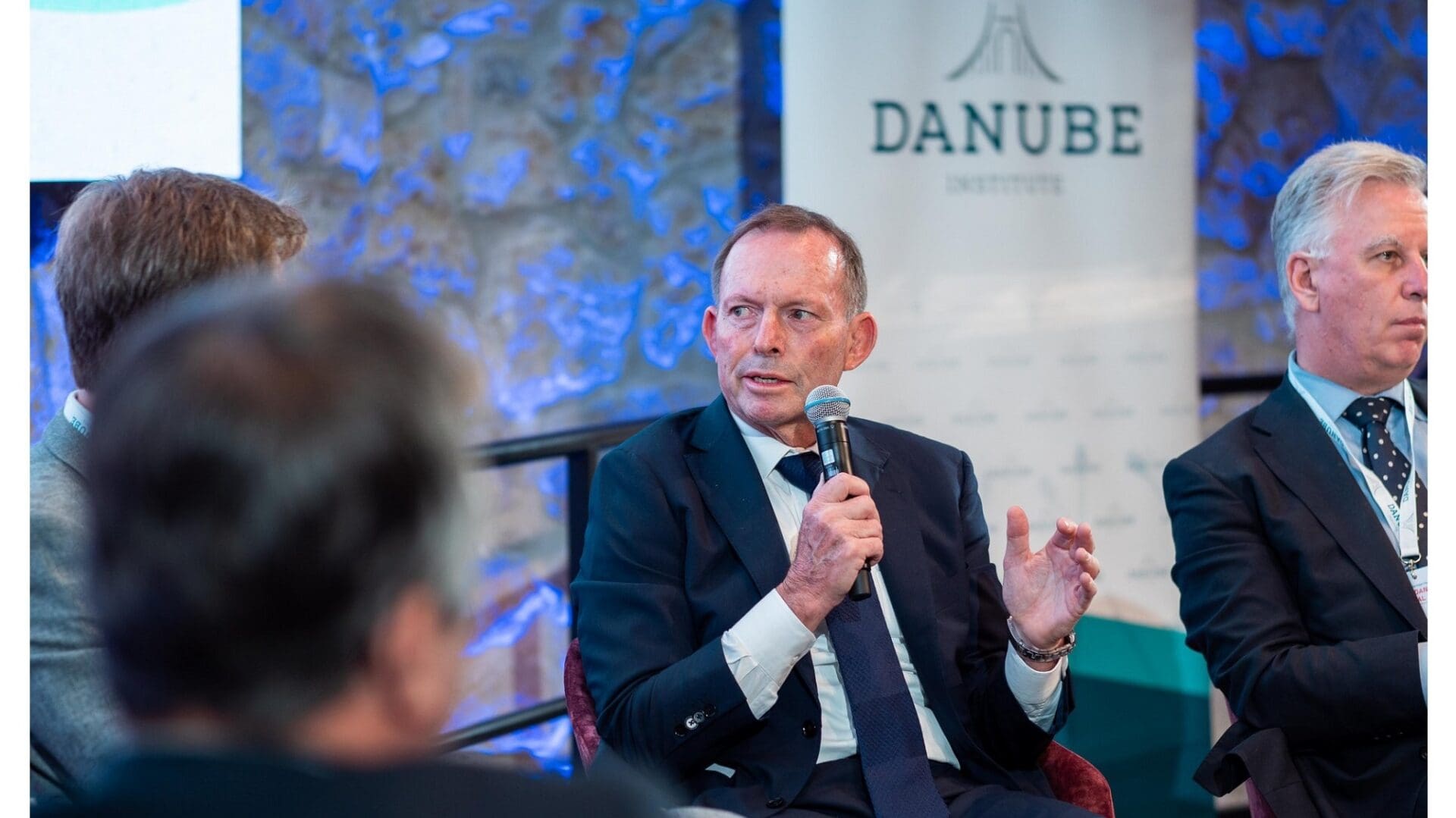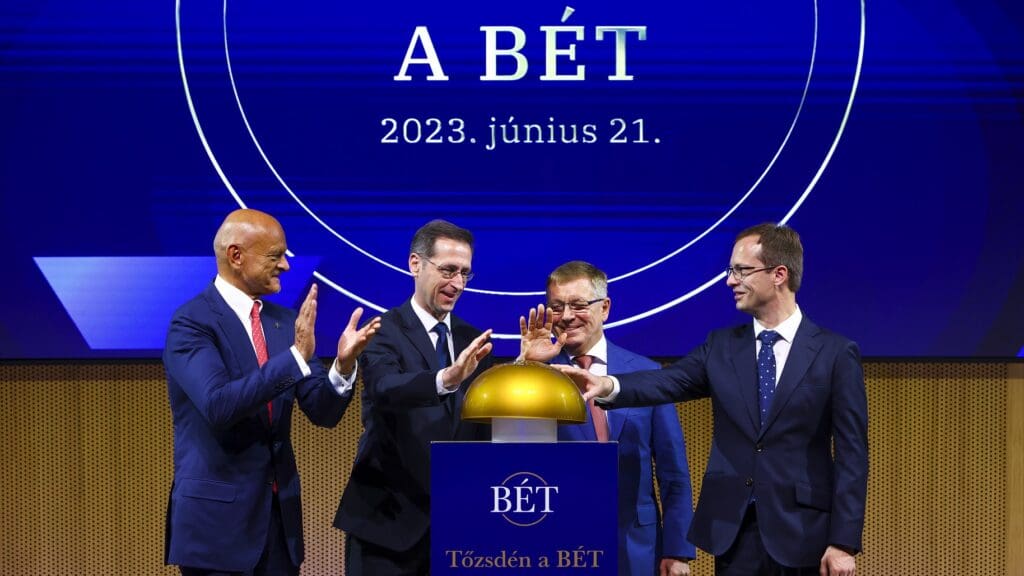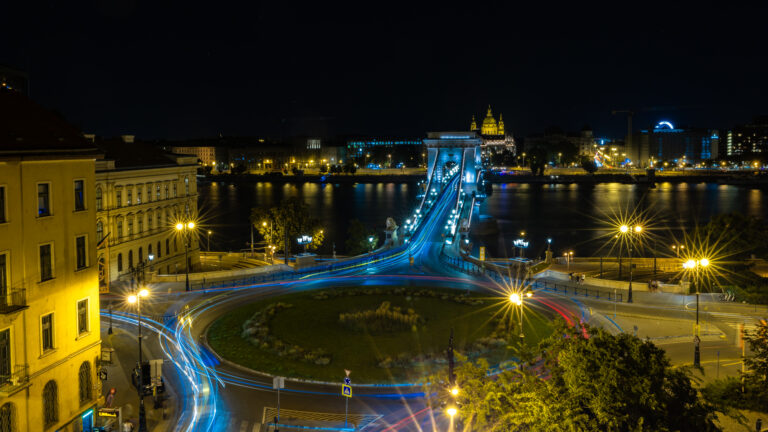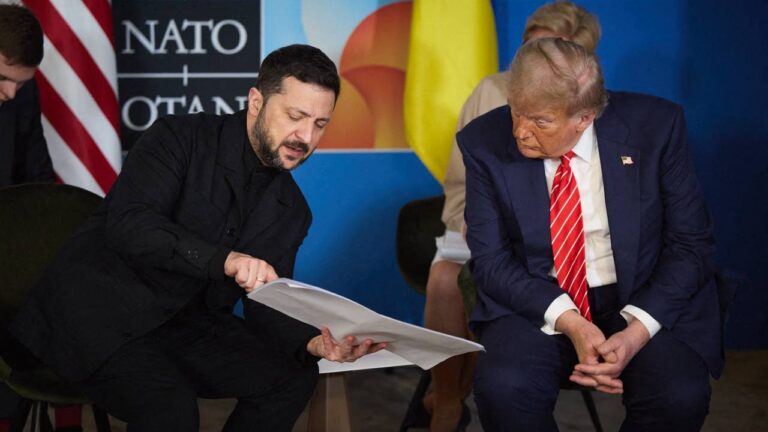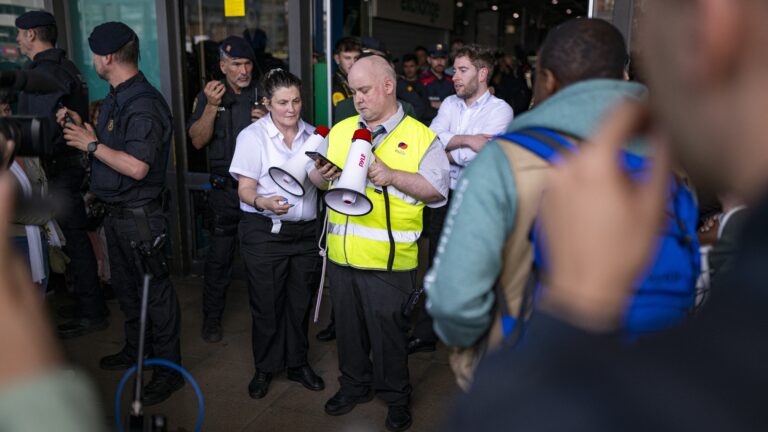The Lónyay-Hatvany Villa was built on top of the ruins of a 17th-century Turkish fortification called ‘the Golden Bastion’ in the 1870s. Descend a flight of stairs from the main entrance, and you will find yourself in a spacious underground hall, where the original 17th-century stonemasonry, as well as a modest historical coin exhibition, lent a museum-like aura to the venue of The Third Danube Geopolitical Summit.
Organizing a high-profile event and hosting policy experts from all around the Globe might not be ‘that’ special in Budapest anymore, however,
what made this summit truly unique is that the Danube Institute managed to create a genuine Washington DC policy event in the Hungarian capital.
The summit was co-hosted by the Heritage Foundation, and also featured a number of speakers from the Hudson Institute—two bulwarks of conservative policymaking in the US—as well as from other prominent American think tanks.
One of the main topics of the event was, of course, the brutal war in Ukraine.
Interestingly, a large chunk of the discussion was from an American perspective: American panellists discussing what the US should do in front of an audience that sometimes would enthusiastically react with trademark American comments like ‘thank you for your service’ or ‘we need Trump’. Even the waiters learned very quickly that when the guests asked for a ‘regular coffee’ they were expecting an americano and definitely not an espresso.
However, it was not lost on the American speakers that the event was hosted by a Budapest-based think tank. A significant portion of Lewis Libby’s keynote address, for example, was devoted to the parallels between the Hungarian Revolution of 1956, and the full-scale Russian invasion of Ukraine.
A Distinguished Fellow at the Hudson Institute,
Libby highlighted that the lack of American involvement in the Hungarian events of 1956 emboldened the USSR the same way as the lacklustre Western response to the Russian annexation of Crimea (2014) emboldened presidents Vladimir Putin and Xi Jinping.
According to Libby, until the gains outweigh the costs—as we have seen in 2014—, aggressors will not stop. Finally, he stressed that the Biden administration’s policy of supporting Ukraine ‘as long as it takes’ should be coupled with a policy of ‘as much as it takes’.
The walls of the conference hall dating back to the 17th century provided a fitting backdrop to the discussion, since it was not only Libby who drew on history to make an argument in the present. George Bogden, Olin Fellow at Columbia University and a Senior Visiting Researcher at Bard College, took the audience back to the erratic days of Belarusian denuclearization in the 1990s. Reflecting on the recent redeployment of tactical nuclear weapons to the country led by Alexander Lukashenko, Bogden warned: this recent proliferation bears more significance than the policymakers in Washington are willing to admit.
When it comes to the war in Ukraine, the organizers of the summit paid special attention to giving a voice to most of the differing opinions presently competing on the Republican side of the political spectrum in the US.
Apart from the abovementioned Hudson line of reasoning, the audience could also hear more cautious, as well as isolationist voices. For example, Michael Anton, senior researcher at the Claremont Institute argued that the West should make every effort to bring the fighting in Ukraine to an immediate halt. In his reading, the international world order needs less, and not more, US leadership.
I believe that the presence of all of these varying opinions is what makes the Third Danube Geopolitical Summit stand out. As James Carafano, Senior Counselor to the President at The Heritage Foundation noted during his opening address: the Danube Institute is a place that gives a platform for real dialogue.
Related articles:

